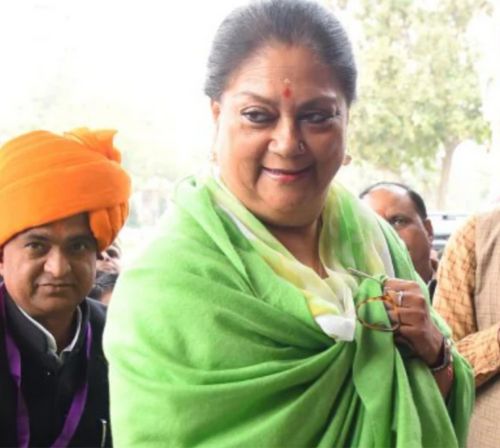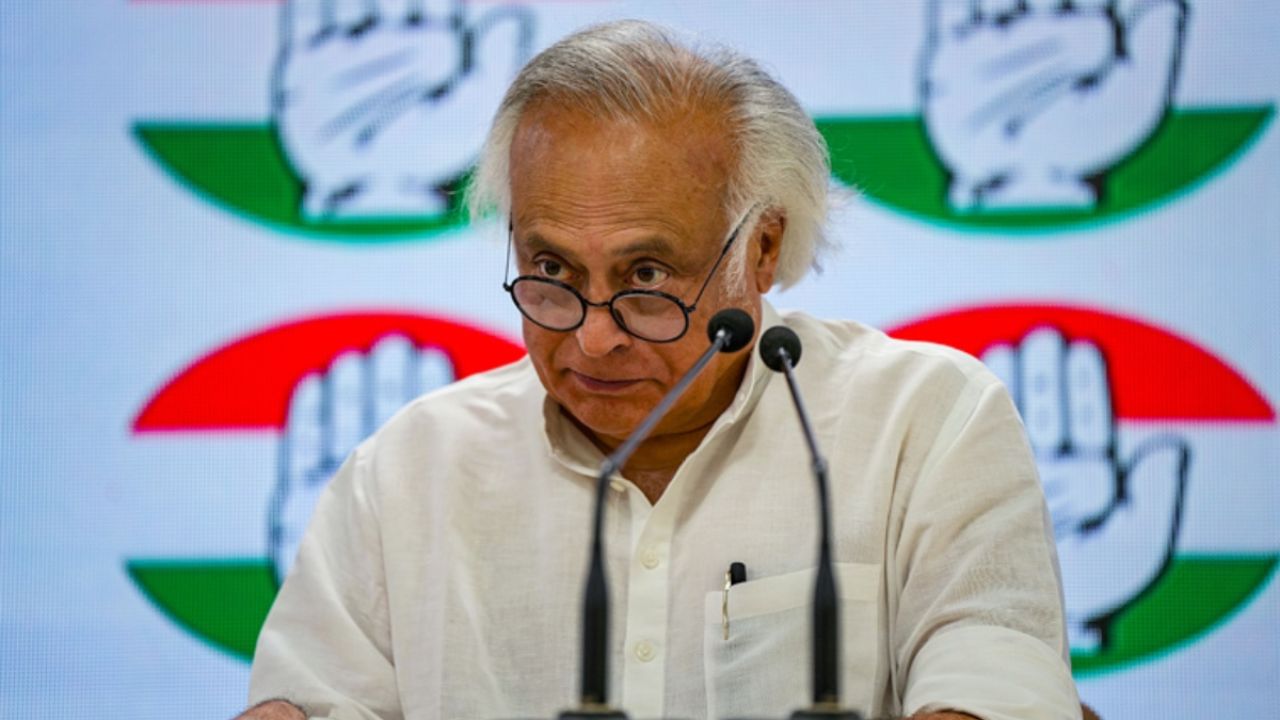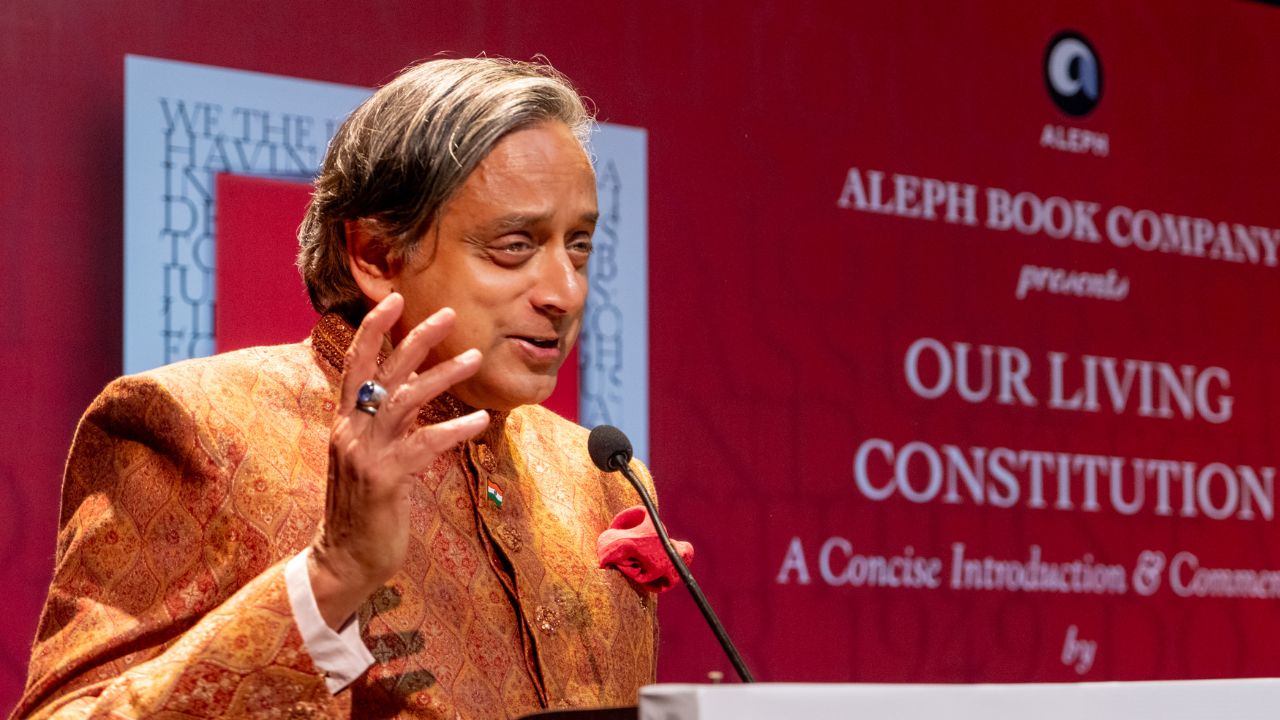Old BJP Leaders Sidelined in Rajasthan as New-Look Unit Feels Lok Sabha Poll Result Aftershocks
Former Rajasthan Chief Minister Vasundhara Raje, whose marginalisation in the Rajasthan unit of BJP is now complete. (Express file photo by Rohit Jain Paras) A month after the Lok Sabha results were announced, senior BJP leader

Former Rajasthan Chief Minister Vasundhara Raje, whose marginalisation in the Rajasthan unit of BJP is now complete. (Express file photo by Rohit Jain Paras)
A month after the Lok Sabha results were announced, senior BJP leader Kirodi Lal Meena announced his resignation as Cabinet minister from the Bhajan Lal Sharma-led Rajasthan government.
Kirodi Lal stated he was keeping his word, having declared before the Lok Sabha elections that he would resign if the BJP lost any of the seven eastern Rajasthan seats under his charge. The BJP ended up losing four of those: Dausa, Tonk–Sawai Madhopur, Karauli-Dholpur, and Bharatpur.
Kirodi Lal’s resignation has not yet been accepted, with BJP president J P Nadda summoning him to Delhi. This move has further fueled speculation about the reasons behind his decision.
Some believe Kirodi Lal is still upset over the BJP denying his brother Jagmohan Meena the Dausa Lok Sabha seat ticket, choosing instead Kanhaiya Lal Meena, who lost. The Congress had also commented at the time, with former health minister Parsadi Lal saying that even his own party would have been happy fielding Jagmohan.
After the polls, the BJP not only picked a Chief Minister but also appointed two Deputy CMs junior to Kirodi Lal in both age and party experience. Kirodi Lal is a six-time MLA, a two-term Lok Sabha MP, and a former Rajya Sabha MP.
In the Cabinet, Kirodi Lal was given the Agriculture department, but the Rural Development and Panchayati Raj Department, traditionally given to the same minister, was divided between him and Madan Dilawar.
However, BJP insiders say Kirodi Lal may not find the party very accommodating. While he is a significant figure in tribal politics in Rajasthan, his assertion as a leader in his own right has gone against him at a time when the BJP prefers low-key leaders who are not major power centers, especially in Rajasthan.
Examples include Vasundhara Raje, whose marginalisation in the state unit is now complete with Bhajan Lal Sharma’s appointment as CM; Gulab Chand Kataria, the party’s tallest leader in the Mewar region, who was moved out as Assam Governor; and Rajendra Rathore, former Leader of the Opposition, and ex-state president Satish Poonia, who are no longer prominent in state politics after losing in the Assembly elections. Recently, Poonia was made the party’s Haryana in-charge.
Raje, who has maintained a notable silence, recently hinted at her dissatisfaction, saying: “Today, people want to cut off the finger which they once held to learn to walk.”
The BJP still has prominent leaders in the state, but they are seen more as Delhi’s people – Om Birla, Gajendra Singh Shekhawat, or Bhupender Yadav.
However, not everything is going according to the BJP central leadership’s plans in Rajasthan. While the party performed well in the Assembly polls, in the recent Lok Sabha elections, the Congress-led alliance picked up 11 seats, after drawing a blank in both 2014 and 2019.
Some in the BJP believe the Congress’s performance reflects the lack of cohesion within the state BJP. A BJP leader who had hoped for a ticket during the Assembly polls mentioned how confusion prevailed at the time. “We didn’t know where to apply for tickets, with Raje, Rathore, C P Joshi (Rajasthan BJP chief), Gajju banna (Gajendra Singh Shekhawat), or go to Delhi.”
The Lok Sabha results have also strengthened doubts about the central leadership’s top-down approach, picking names based on its own understanding of the situation.
Following Kirodi Lal’s resignation, Congress leader Himmat Singh Gurjar repeated a remark by a Meena supporter: “Dharna deve Kirodi Lal, Mukhyamantri ban gayo Bhajan Lal (Kirodi Lal sat on dharnas, but Bhajan Lal became the CM).”
One consistent line of attack by the Congress against the Bhajan Lal government has been that it is “toothless.” Congress state president Govind Singh Dotasra says it is Rajasthan’s “misfortune” that a “parchi (paper slip)” government will be “run by Delhi” – referring to the fact that the BJP leadership conveyed its choice of the next CM via a paper slip, handed over publicly to a visibly stunned Raje.
Moreover, the optics haven’t been right. CM Bhajan Lal, state party president Joshi, and Governor Kalraj Mishra are all Brahmins. When Bhajan Lal took over, the DGP (Umesh Mishra) and Chief Secretary (Usha Sharma) were also Brahmins.
A senior party leader pointed out, “There is no general secretary (Organisation), no state in-charge, the state president is also an MP, and the CM is a first-time MLA… The feedback system is broken too. Earlier, we had inputs from the RSS as well.”
The best example of the loss of touch with the ground was the BJP’s performance in the Shekhawati region, where it paid the price for Jat anger. There were barely any serious attempts by the party to pacify the community.
Another leader questioned the way Raje was sidelined, saying that even if the high command didn’t want her at the helm, she could have been used to guide younger leaders during the transition.
However, there are those in the party who laud the choice of Bhajan Lal as CM, as proof that the party rewards hard work and devotion rather than entrenched names. “At the Chief Minister’s Office or residence, it is normal to spot a common man from the remotest of places going in to meet the CM… At party programs, he usually stays back long after the program is over to meet party workers, all of whom he knows personally,” a CM loyalist said.




